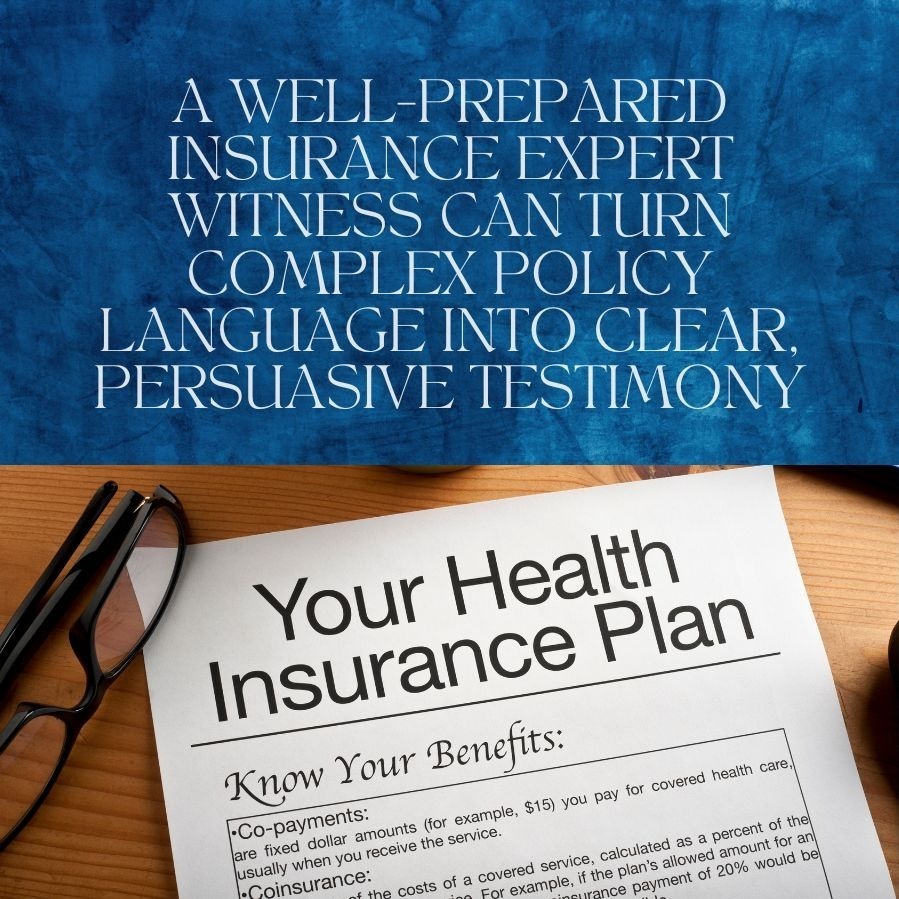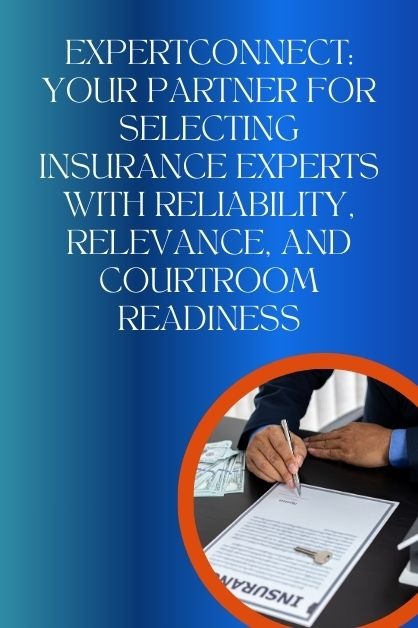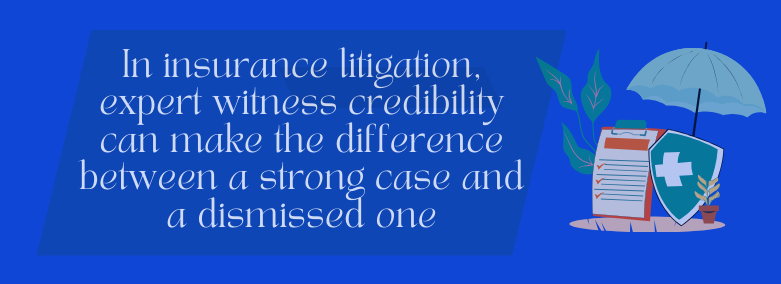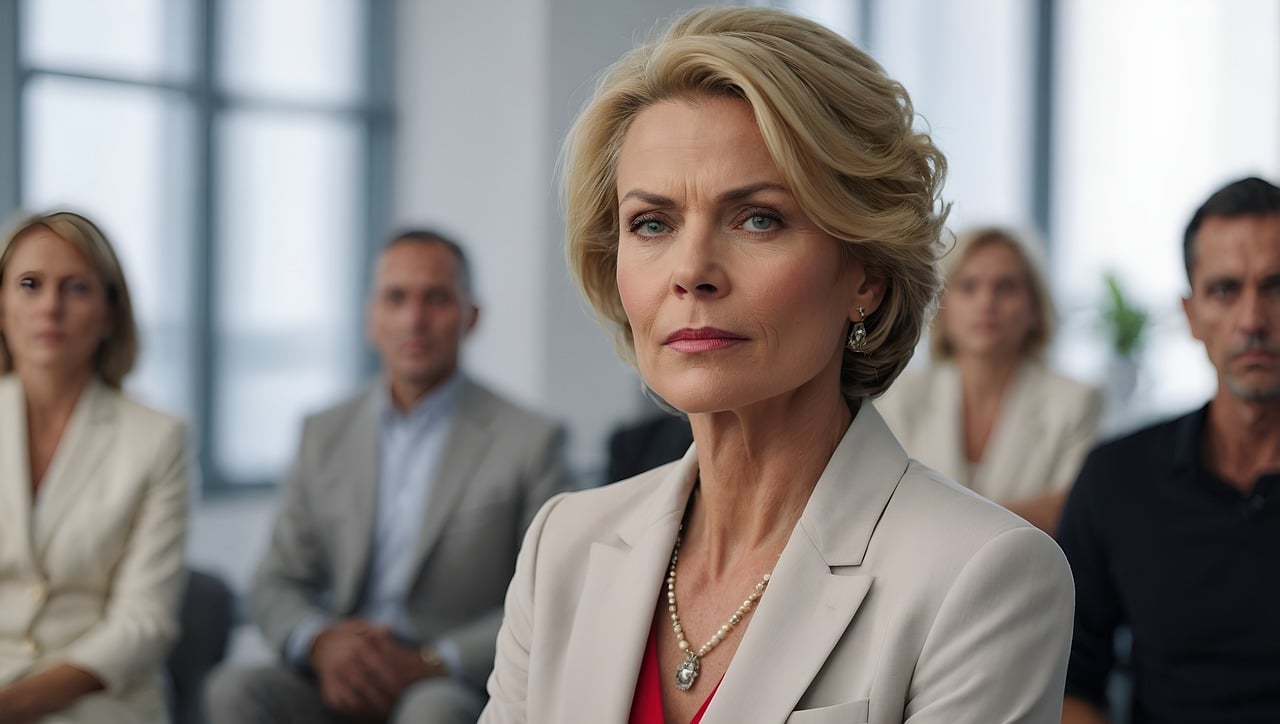Best Insurance Expert Testimony in Product Liability Cases
In product liability litigation, particularly cases involving insurance claims, selecting a credible and well-prepared expert witness can be the defining factor between a strong case and a dismissed one. This is the fastest way to select the best insurance expert witness for product liability litigation. Insurance experts play a critical role in helping courts understand the complexities of policy interpretation, claims handling, and industry standards.
However, not all experts bring the same level of reliability and relevancy to a case. The process of selecting the right expert witness requires thorough vetting and careful consideration to ensure that their expert testimony in liability cases will meet stringent standards of reliability and relevance under rules such as the Daubert standard in the U.S. legal system.
Choosing the right insurance expert witness expert testimony in liability is vital in product liability litigation. A credible, well-qualified expert can clarify complex insurance issues, from policy interpretation to claims procedures. In contrast, poorly selected experts risk their testimony being excluded under Daubert or other admissibility standards.

Learn the key steps to selecting and vetting an expert for insurance-related litigation cases.
Why The Right Expert Testimony in Product Liability Cases Matters
Liability case expert witness selection has proven time and again to be a pivotal point in the outcome of high-stakes litigation. A well-qualified insurance expert can clarify complicated insurance industry concepts and testify credibly about policy standards and claims practices. On the other hand, selecting an expert testimony in liability who lacks the necessary expertise or methodological rigor can lead to the exclusion of their testimony—a serious setback for any case.
The U.S. Supreme Court’s decision in Kumho Tire Co. v. Carmichael underscored the importance of this rigorous selection process. This landmark case not only set a precedent for assessing expert reliability but also illustrated how failing to ensure an expert’s qualifications and methodologies are relevant to the specifics of the case can be a critical misstep.

Case Example: Kumho Tire Co. v. Carmichael
In Kumho Tire Co. v. Carmichael, the plaintiffs brought a product liability suit after a tire failure caused a fatal accident. The plaintiffs’ legal team relied on a mechanical engineer as their expert witness to testify that a manufacturing defect caused the tire to fail. Although the expert had an engineering background, his analysis was based on subjective visual and tactile inspection methods that were not widely accepted or scientifically validated within the tire manufacturing or engineering fields.
The Court found several issues with the expert’s qualifications and methods:
Lack of Specific Expertise: While the expert was a mechanical engineer, he did not have specific expertise in tire failure analysis. His general engineering background was insufficient for the case’s needs.
Methodology Problems: The expert’s method—relying on a visual inspection to determine the tire’s defectiveness—lacked scientific rigor and could not be reliably reproduced by others in the field.

Inconsistent Analysis: The expert gave inconsistent testimony about how he determined the tire’s failure, which made his conclusions seem subjective and speculative.
The Supreme Court ultimately upheld the trial court’s decision to exclude the expert’s testimony, emphasizing that an expert’s methods must be reliable and applicable to the facts of the case to be admissible. This decision underlined the importance of selecting an expert who possesses both specific industry expertise and a reliable methodology.
Key Lessons from Kumho Tire Co. v. Carmichael
The Kumho Tire case underscores the need for law firms to thoroughly vet potential experts for specific expertise relevant to the case and to ensure their methods can withstand scrutiny. In product liability cases with expert testimony in liability, particularly those involving insurance claims, these principles are especially important. Insurance policies, claim handling standards, and industry practices are nuanced areas that require specialized knowledge.
Steps to Selecting the Best Insurance Expert Witness
When selecting an insurance expert witness for product liability litigation, it’s essential to follow a structured vetting process.

Here are key steps to help ensure that the expert selected is reliable, relevant, and credible:
1. Identify the Specific Expertise Needed
Insurance litigation may involve specialized areas such as claims handling, underwriting standards, or policy interpretation. Identifying the exact area of expertise needed allows attorneys to narrow their search to experts with the precise qualifications for the case.
In a case involving post-accident claims handling, for example, an expert with experience in insurance claims processing may be preferable over one with underwriting expertise. Similarly, for cases focusing on bad faith claims, an expert with specific knowledge of industry standards and regulatory requirements is invaluable.
2. Conduct a Thorough Background Check
A critical part of expert selection is thoroughly verifying an expert’s credentials. This includes reviewing:
Educational Background: Confirm that the expert’s education is in a field relevant to insurance practices or claims handling.
Professional Experience: Assess whether the expert has firsthand experience working in roles similar to those relevant to the case, such as claims adjuster or insurance underwriter.
Previous Testimonies: Prior court testimonies can reveal whether the expert has a history of reliable, admissible testimonies or has faced challenges that might weaken their credibility.
Conducting an in-depth background check helps avoid scenarios like those in Kumho Tire, where a lack of specific expertise contributed to the expert’s exclusion.
3. Evaluate Methodological Rigor
In insurance-related product liability cases, it’s not enough for an expert to have experience; they must also employ reliable methods that are generally accepted within the insurance industry. When vetting experts, ask the following questions:
Does the expert’s methodology align with established industry standards?Can the expert’s conclusions be replicated and verified by other professionals?Has the expert’s method been accepted by courts in past cases?
These questions help ensure that the expert’s methodology will stand up under Daubert or similar admissibility standards, preventing potential exclusions.
4. Assess Communication Skills
Even the most qualified expert can falter if they lack the ability to explain complex insurance concepts in an understandable way. During pre-trial interviews, assess the expert’s ability to communicate clearly and answer questions confidently. In Kumho Tire, the expert’s inability to consistently explain his findings undermined his credibility, ultimately contributing to the Court’s decision to exclude his testimony.
5. Verify Objectivity and Screen for Conflicts of Interest
Objectivity is crucial in expert testimony, as any perceived bias can undermine the expert’s credibility. A comprehensive vetting process includes:
Checking the expert’s litigation history to see if they have consistently testified for plaintiffs or defendants, which might indicate bias.
Screening for any prior relationships with either party in the litigation.
Thorough conflict-of-interest screening ensures that the expert will be perceived as an impartial authority on insurance practices.
6. Utilize an Expert Witness Network for Comprehensive Vetting
To avoid the mistakes illustrated in Kumho Tire, law firms may find it beneficial to leverage expert witness networks like ExpertConnect Litigation Support.
These networks provide access to pre-screened experts who have been vetted for qualifications, methodological rigor, and courtroom communication skills. ExpertConnect can help attorneys quickly locate experts with specific insurance expertise, saving valuable time and reducing the risk of selection errors that could compromise a case.
Why Expert Witness Networks Matter in Insurance Litigation
Leveraging an expert witness network is invaluable when time is limited, and the pool of qualified experts is narrow. Expert witness companies provide several benefits:
Access to Specialized Expertise: Networks have a broad range of experts in niche fields like claims handling, policy reconstruction, and bad faith litigation.
Thorough Pre-Screening: Expert witness companies conduct extensive background checks, ensuring that experts have the necessary credentials and experience.
Quality Assurance: Experts associated with reputable networks typically meet high standards for methodological consistency and courtroom readiness.
Efficiency and Cost-Effectiveness: Expert witness networks streamline the selection process, saving law firms time and reducing the cost of locating and vetting experts independently.
By partnering with a trusted expert witness service like ExpertConnect, law firms can confidently select experts whose qualifications, methodologies, and experience align with the case’s needs.
Conclusion: Avoiding Costly Mistakes in Insurance Expert Selection
The Kumho Tire case is a powerful reminder of the importance of selecting the right expert witness for product liability litigation. In insurance cases with expert testimony in liability, where policy language, industry standards, and claims handling practices are complex, having an expert who is both credible and well-prepared is essential. Law firms can mitigate risks by taking a meticulous approach to expert selection, focusing on qualifications, methodological rigor, communication skills, and objectivity.
ExpertConnect Litigation Support offers an invaluable resource for law firms seeking reliable insurance experts who meet these standards. With a network of pre-vetted professionals, ExpertConnect helps law firms navigate the challenges of expert selection with confidence. Visit ExpertConnect’s website to explore their directory and streamline your search for a qualified insurance expert witness who can insure expert testimony in liability case’s to enhance your case’s impact.
Source: Kumho Tire Co. v. Carmichael, 526 U.S. 137 (1999)